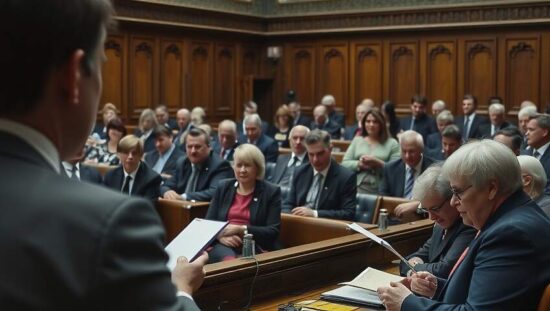The fragility of German coalition politics was underscored this week as Bundestag President Julia Klöckner issued a thinly veiled warning to the governing “black-red” coalition – a partnership between the Christian Democratic Union (CDU) and the Social Democratic Party (SPD). While refraining from directly assessing the government’s performance, Klöckner emphasized the inherent challenges and compromises required to sustain a coalition government, highlighting the demands placed on participants and the need for pragmatic consensus.
Speaking to the Frankfurter Allgemeine Zeitung, Klöckner stressed that democracy is not merely a matter of consensus but demands a certain level of resilience and adeptness in navigating fundamentally divergent viewpoints. She cautioned against the expectation that a coalition should achieve complete uniformity, acknowledging that political ideologies rarely, if ever, undergo wholesale adoption. The President argued that the essence of successful coalition governance lies in the willingness of all parties to moderate their ambitions and adhere to the framework established within the coalition agreement.
Klöckner’s remarks, while ostensibly a call for unity, subtly addressed growing tensions within the coalition. Reports have circulated regarding disagreements on key policy areas, including immigration and economic strategy, testing the bonds between the traditionally distinct political camps. Her reminder that “the goal of coalition governments is not unity, but the ability to reach agreement” suggests a concern that the pressures of electoral promises and ideological purity are jeopardizing the delicate balance needed for effective governance.
The CDU has explicitly stated its priorities – focusing on security, controlled migration and robust economic growth – indicating potential flashpoints where compromise with the SPD, historically advocating for more liberal immigration policies and a heavier social safety net, could be difficult. Klöckner’s statement can be interpreted as a plea for both parties to prioritize the stability of the government and the delivery of its mandate, even if it requires sacrificing elements of their individual platforms. Her comments signal a recognition that the success of the current government hinges on its ability to navigate ideological differences and maintain a shared commitment to the agreed-upon framework, a process she describes as “a hard business” for all involved.





